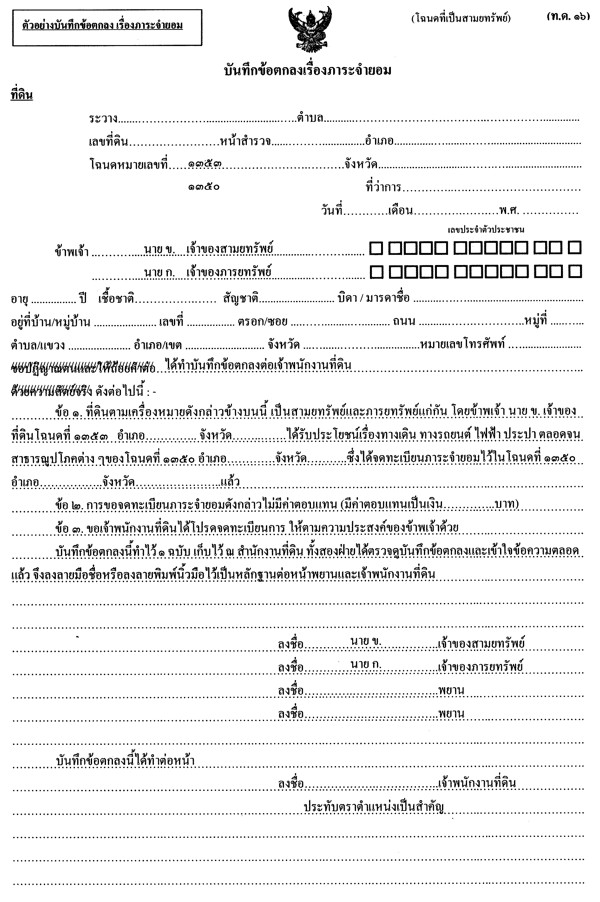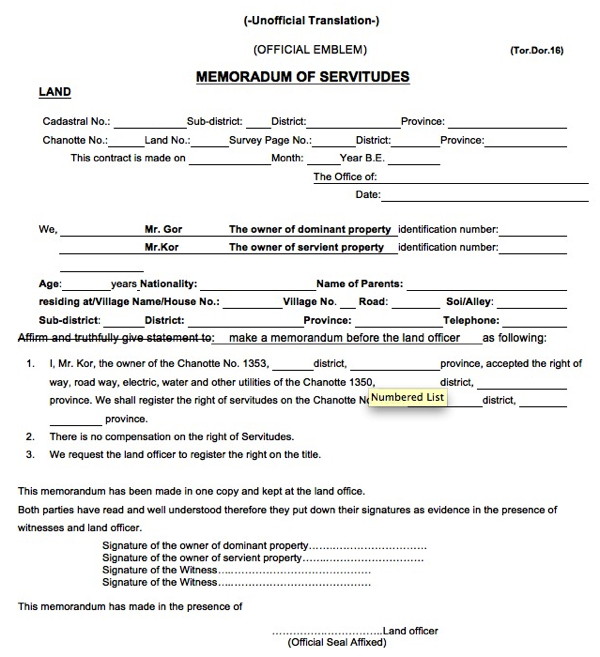Many people have questions about the different sorts of property rights according to the Thai Civil Code. These articles will tell you about property real rights and personal rights.
“Real Rights” are a right that a person has over immovable property. Rights attach to a thing rather than a person. Real property rights must be registered against the title deed of the property. Some common real rights are:
Servitude (Easement)
Section 1387 of the Civil Code states: “An immovable property may be subjected to a servitude by virtue of which the owner of such property is bound, for the benefit of another immovable property, to suffer certain acts affecting his property or to refrain from exercising certain rights inherent in his ownership”.
SERVITUDES is a registered right that a person has over the immovable property of another. It allows the holder of the servitude to do something with the other person’s property, which may infringe upon the rights of the owner of that property. A servitude is also known as an easement.
How to Register
The owner of the dominant property and the owner of servient property make a contract and register their rights at the land office where the land located. Both parties agree on how much the compensation is.
If there is no compensation, the fee would be 50 baht per plot of land plus some miscellaneous fees charged by the Land Deparment.
If compensation is being paid on the land, the government fee is 1% of the total compensation plus some miscellaneous fees will be imposed by the Land Department.
Documents Needed:
- Original Title Deed of both land;
- ID.Card and House Registration of both parties;
- Any Name Change, Surname Change or Marriage Certificate (if any)
Sample of Memorandum by Land Office

